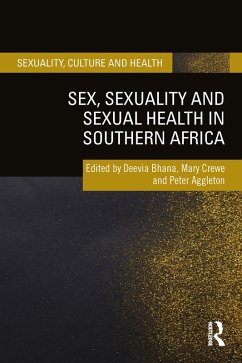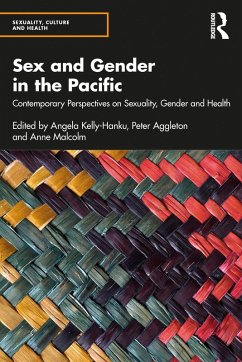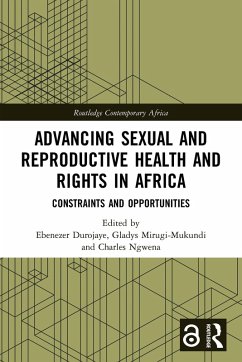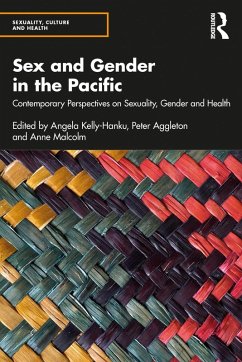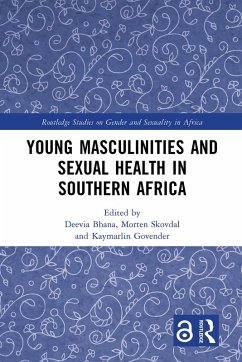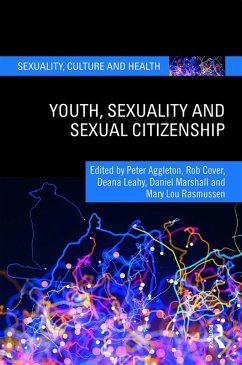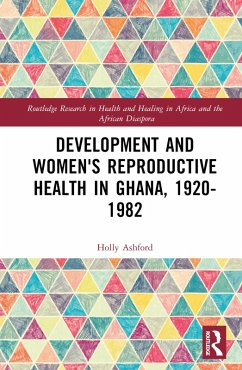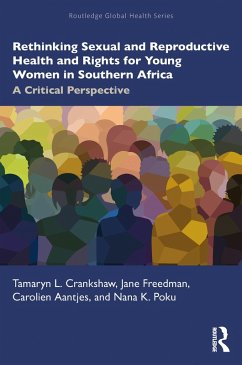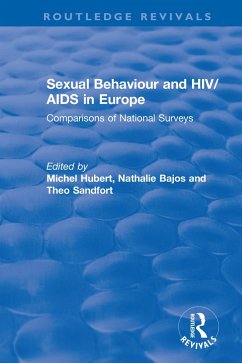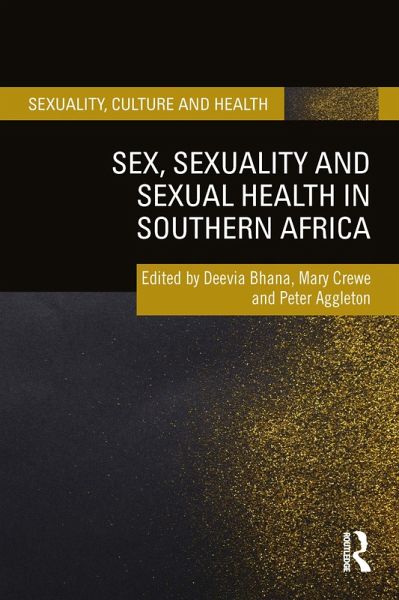
Sex, Sexuality and Sexual Health in Southern Africa (eBook, PDF)
Versandkostenfrei!
Sofort per Download lieferbar
38,95 €
inkl. MwSt.
Weitere Ausgaben:

PAYBACK Punkte
19 °P sammeln!
This book-Sex, Sexuality and Sexual Health in Southern Africa-is structured around four major themes: gender and sexuality diversity; love, pleasure and respect; gender, sexual violence and health; and sexuality, gender and sexual justice. Chapters in this book analyse sexuality in relation to recent developments in the Southern African region and what this might mean for contemporary theory, policy and practice.Sex, sexuality and sexual health are often viewed through a narrow biomedical lens, ignoring the fact that they are profoundly social and historical in character. The contributors in t...
This book-Sex, Sexuality and Sexual Health in Southern Africa-is structured around four major themes: gender and sexuality diversity; love, pleasure and respect; gender, sexual violence and health; and sexuality, gender and sexual justice. Chapters in this book analyse sexuality in relation to recent developments in the Southern African region and what this might mean for contemporary theory, policy and practice.
Sex, sexuality and sexual health are often viewed through a narrow biomedical lens, ignoring the fact that they are profoundly social and historical in character. The contributors in this book bring to light the entanglements of sexuality with respect, recognition, rights and mutual respectful pleasure. Authors draw attention to partnerships, allyships and feminist, queer and trans coalitions in the pursuit of sexual health and justice in the region.
The book will be of interest to final-year undergraduate and postgraduate students, researchers and activists as well as those working in Women and Gender Studies, Critical Sexuality Studies, Sexual and Reproductive Health, Development Studies, Public Health, Psychology, Education, Sociology and Anthropology.
Sex, sexuality and sexual health are often viewed through a narrow biomedical lens, ignoring the fact that they are profoundly social and historical in character. The contributors in this book bring to light the entanglements of sexuality with respect, recognition, rights and mutual respectful pleasure. Authors draw attention to partnerships, allyships and feminist, queer and trans coalitions in the pursuit of sexual health and justice in the region.
The book will be of interest to final-year undergraduate and postgraduate students, researchers and activists as well as those working in Women and Gender Studies, Critical Sexuality Studies, Sexual and Reproductive Health, Development Studies, Public Health, Psychology, Education, Sociology and Anthropology.
Dieser Download kann aus rechtlichen Gründen nur mit Rechnungsadresse in A, B, BG, CY, CZ, D, DK, EW, E, FIN, F, GR, HR, H, IRL, I, LT, L, LR, M, NL, PL, P, R, S, SLO, SK ausgeliefert werden.




